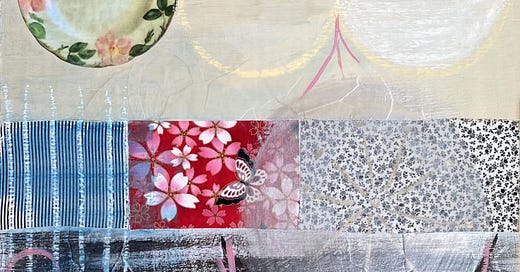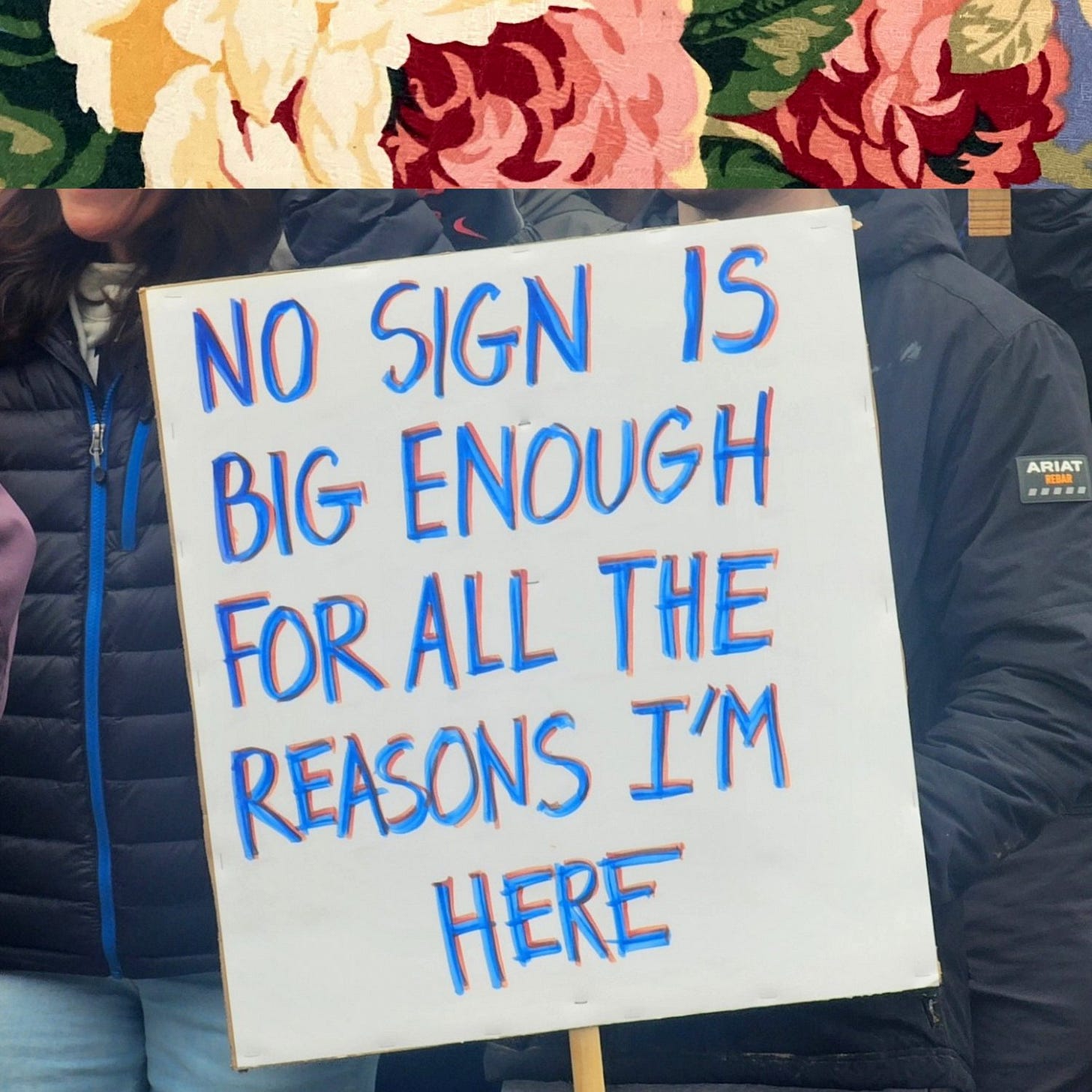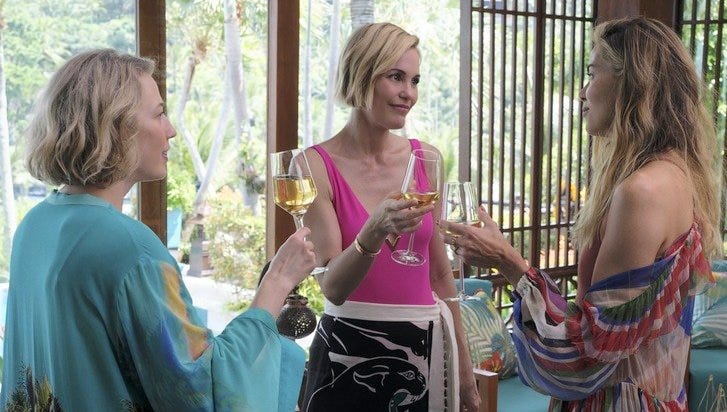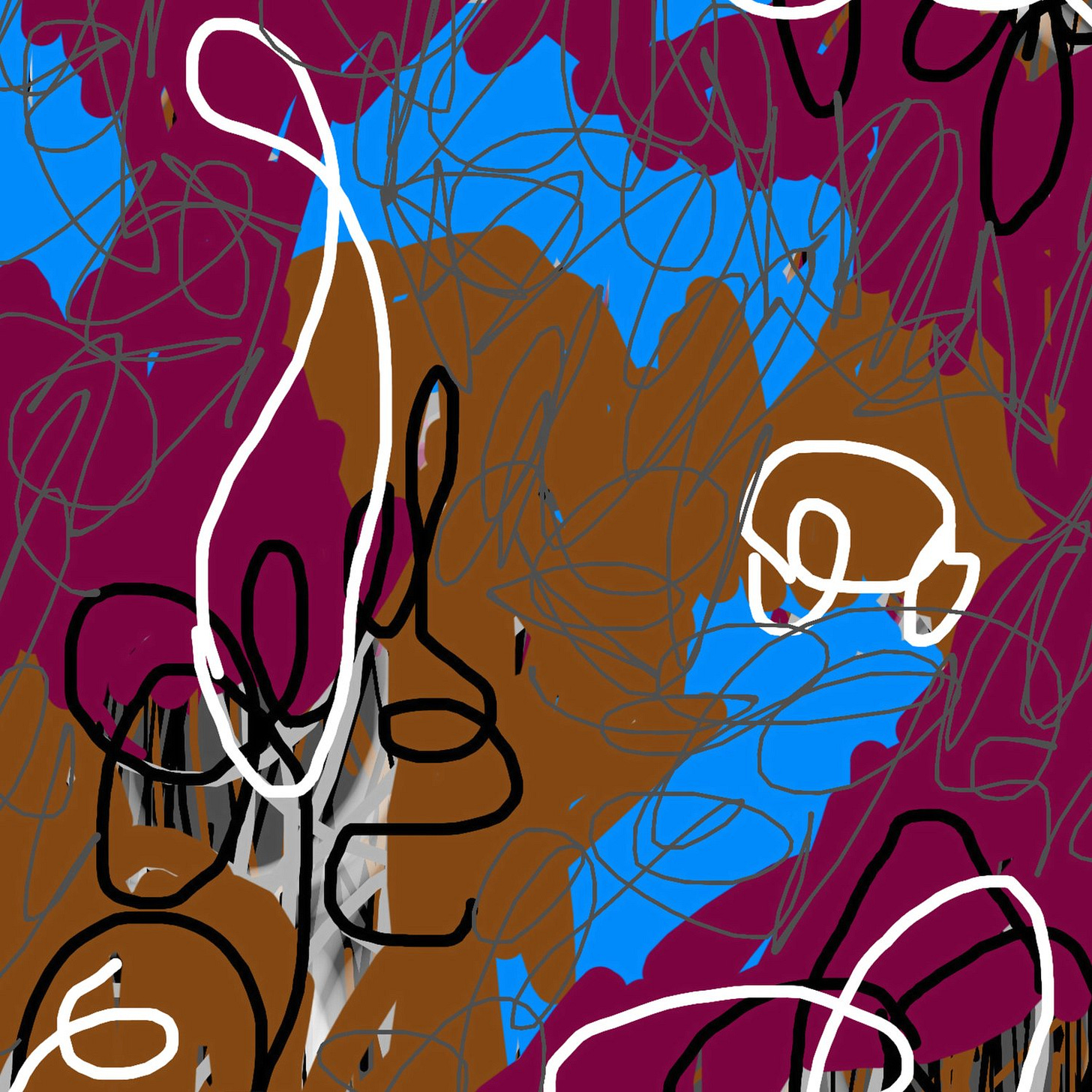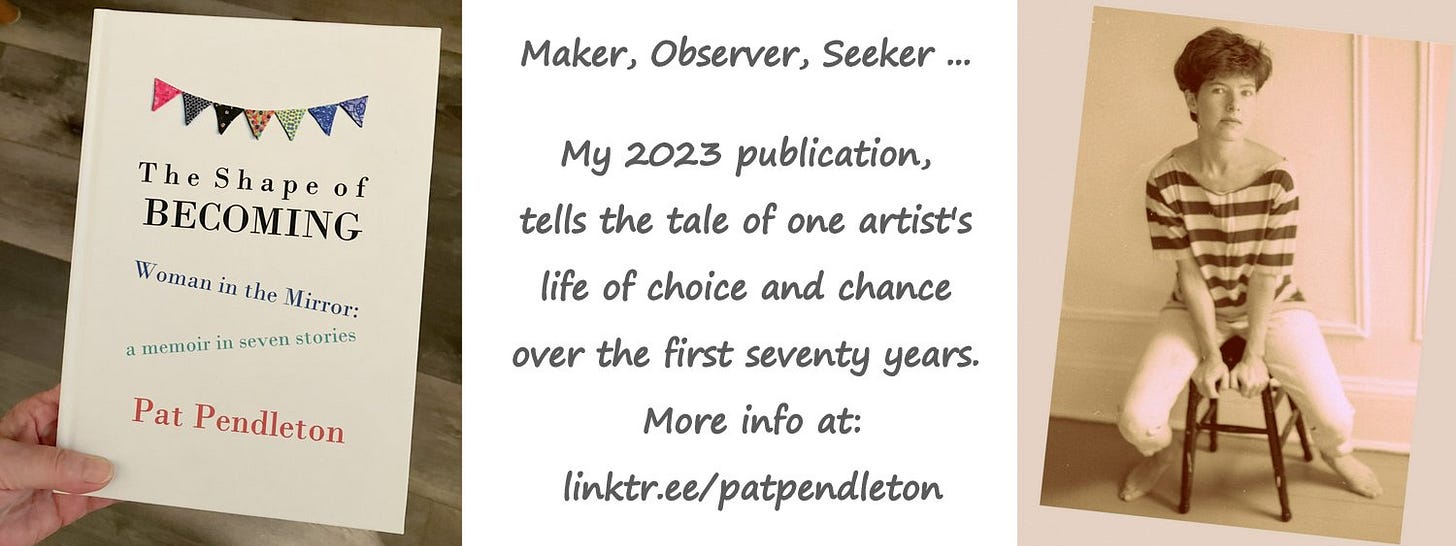The present moment takes on a new dimension as experience shapes us and takes root within—recurring rhythmic patterns of ebb and flow move us through subtle changes. Coming and going. Gain and loss. Creation and destruction.
The Butterfly Effect conjures the visual image of a butterfly fluttering from one blossom to another. Without an investigation of the complexities of chaos theory, it is easy to accept the idea that one small action here might impact outcomes there.
Here and there are connected.
The country has recently experienced two large-scale tribal events. Protest rallies last month on April 5th brought out close to six million Americans in cities across the country. The third season finale of The White Lotus television series was watched by about the same number.
People engaging with the challenges of this actual moment versus people engaging with a pretend scenario of our time. Both impressive.
There will be more protests against the attacks on democracy—different from women’s rights marches or anti-war peace protests of yesterday. The damage has been done and the leaders are off golfing and mentally collapsing.
Citizens are left with little to do but push back—over and over again—experience the unfolding of something, possibly catastrophic, while attempting to transform that.
As a tv viewer, I entered the experience of a posh resort in Thailand and all the drama stirred up among the guests at The White Lotus. I became emotionally invested in outcomes in an environment soaked in the symbols of spiritual seeking. The quest of each guest is explored, stories centered on greed and personal angst. Catastrophic events leave surviving characters altered as they face their return home.
Three women friends since high school reunite during an exotic retreat week paid for by the successful Jaclyn, a celebrity actress on a popular tv show. She is joined by Kate, a wealthy Texan wife and Laurie, an urban professional raising a challenging teen by herself.
From the start of the series, Laurie presents herself to be disappointed with her life and drinking too much. Kate tries to hide her high-status Trump-supporting lifestyle while in the company of two liberals. Jaclyn reveals insecurity about her aging appearance. There to be pampered and have fun like the teens they once were, but being together for a week proves more difficult than their loose long-distance connections. Despite tears and careless remarks, they manage to resolve the conflict during the last scene together. Jaclyn and Kate have grown closer and glow with blissful contentment as Laurie remains somewhat distanced and offers her heartfelt truth. Admitting to not feeling quite so wonderful as her friends, she explains:
As you get older you have to justify your life.
After trying and failing at societal religions like career, romance and motherhood she has discovered a bit of wisdom:
Time gives life meaning.
While a lot of the post-show commentary suggests various takes on the dynamic between the three women, I see Laurie owning her own experience and her difference from the other two—accepting the gap between her life and their lives. She surrenders to it and finds comfort in simply being there, assuring Jaclyn and Kate:
I’m just happy to be at the table.
Of course she is. Jaclyn brought her along on a pricey all-expense-paid vacation!
During this era of personal branding when so much of identity is tied to what we do, what we have, and measurable achievement, how does one remain happy with the consequences of choice and chance?
Butterfly effect—ebb and flow.
Is it possible to stay free from labels and expectations—free to shift direction, do something different, be creative in any way that feels right?
We have nothing but time. Look back and it stacks up in a meaningful way.
And it is precious.
~~~~~~
Consider a one-time donation?
This is a reader-supported publication. Thank you for taking the time to read it! Free subscriptions are available to receive new posts and support my work. Paid subscriptions are appreciated, but optional.


